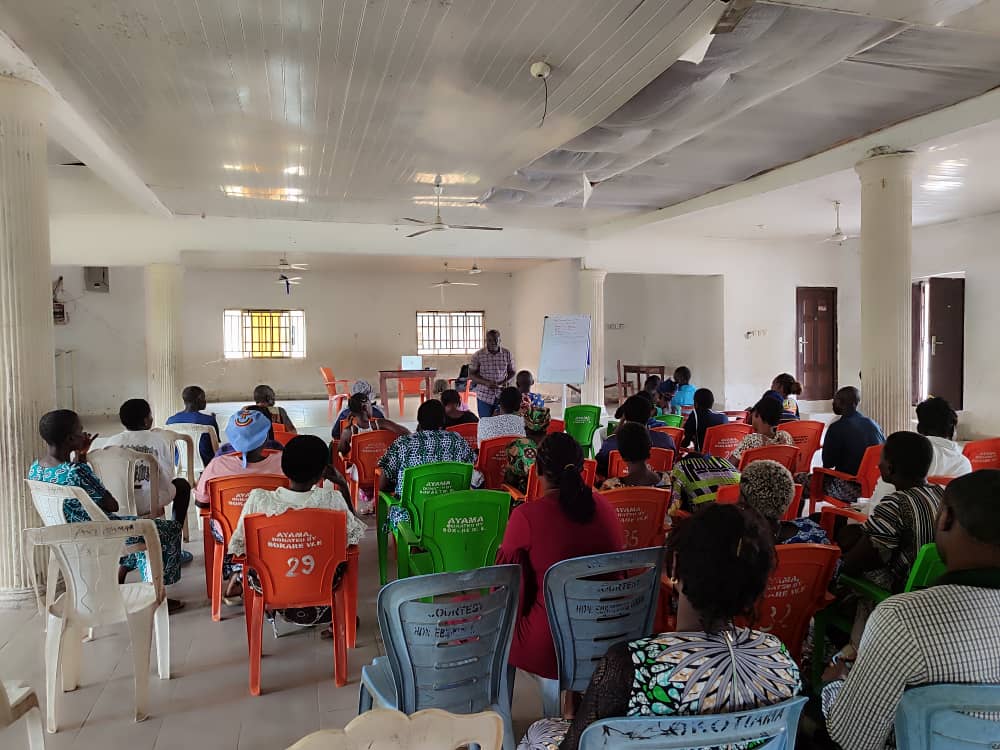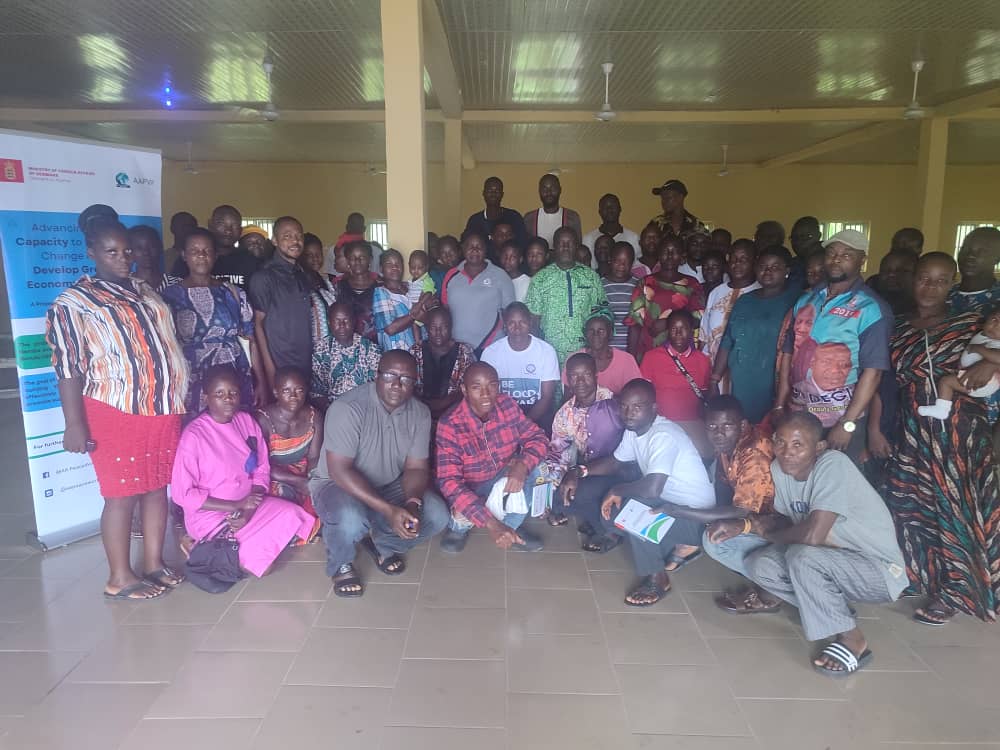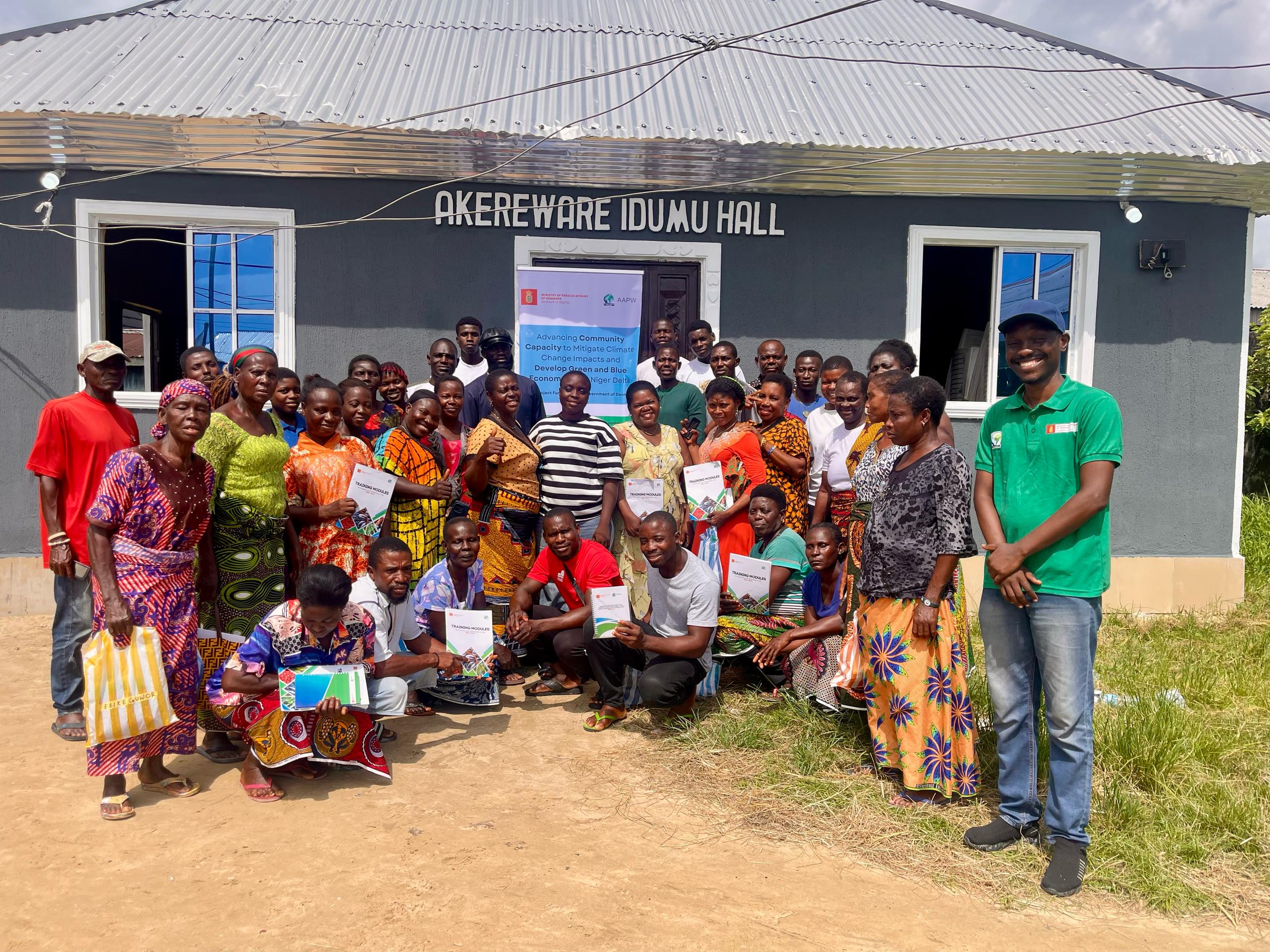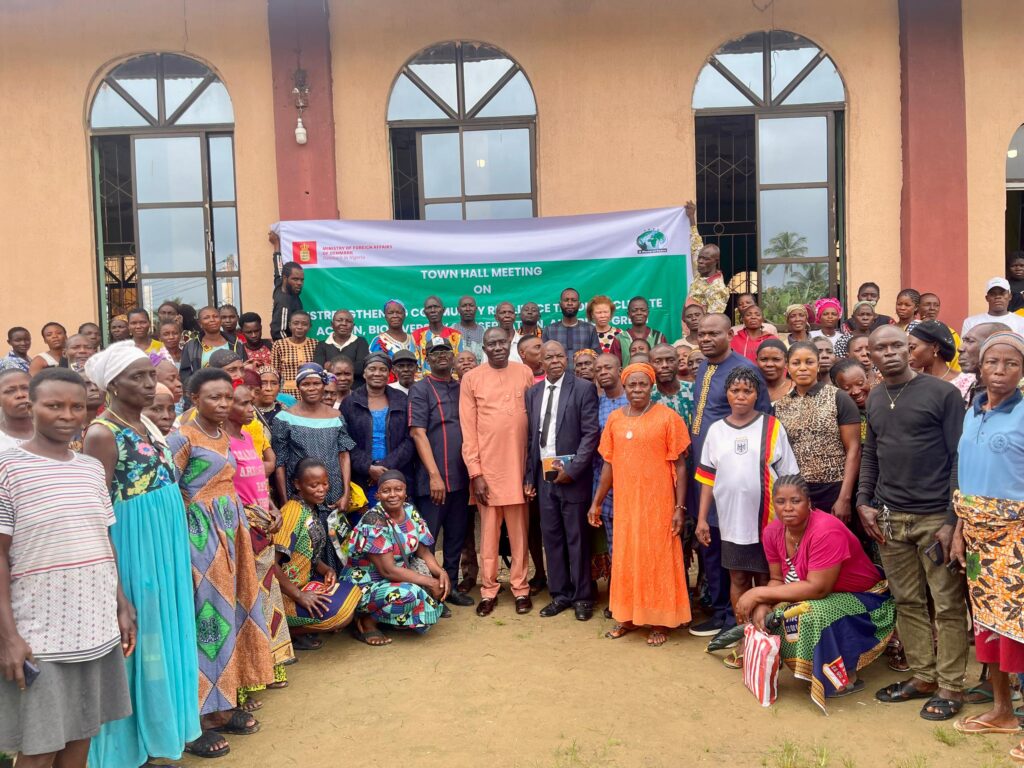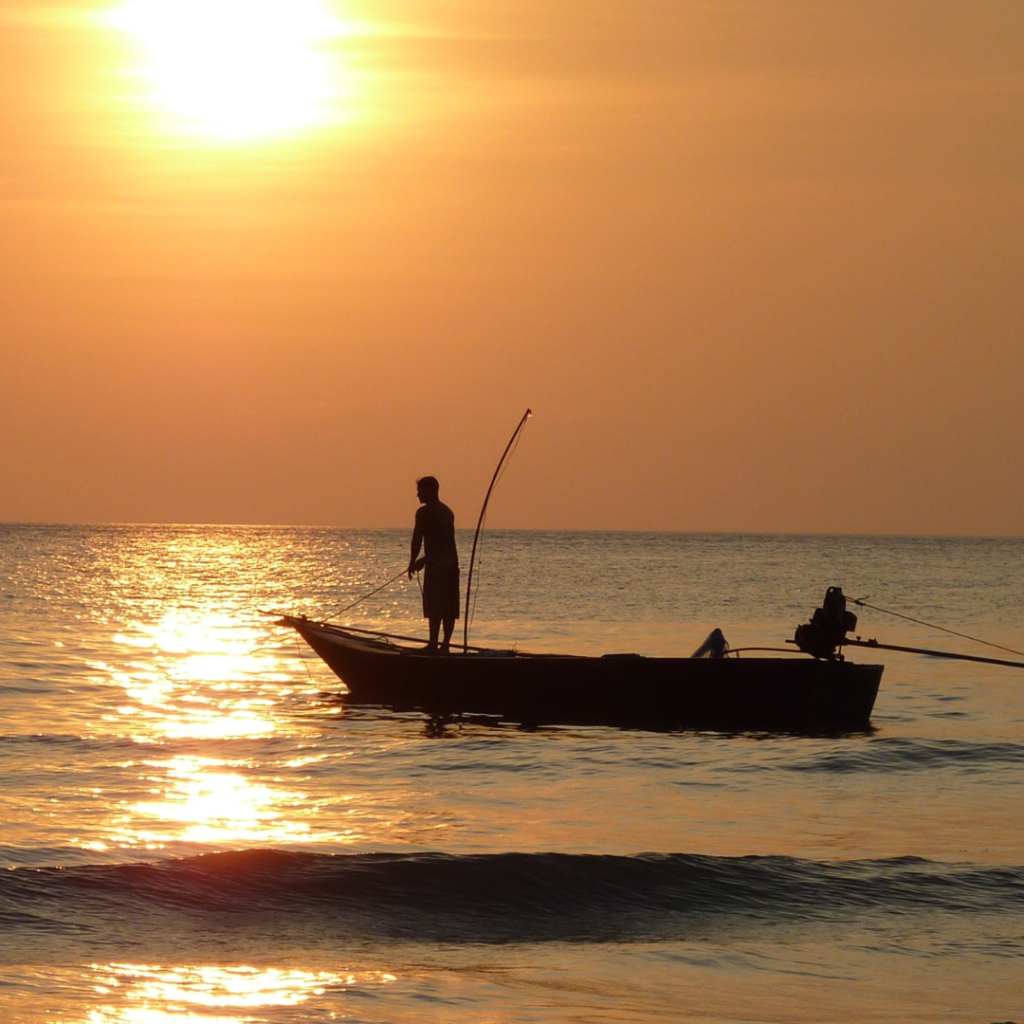As part of ongoing efforts to strengthen local resilience and economic sustainability, a comprehensive training program has been conducted under the project titled “Advancing Community Capacity to Mitigate Climate Change Impacts and Develop Green and Blue Economy in the Niger Delta.” The initiative is funded by the Government of Denmark through its Ministry of Foreign Affairs of Denmark in Nigeria and is being implemented by Academic Associates PeaceWorks.
The training, which took place across four project communities in Delta and Bayelsa States, focused on equipping farmers and fisherfolks with practical knowledge and tools to improve their livelihoods, manage their resources more effectively, and tap into sustainable economic opportunities.
Structured into five intensive modules, the sessions focused on project management, value addition and processing, market linkages, financial management, business planning, and sustainable fishing techniques.
In the first module, participants were introduced to the fundamentals of project management. The sessions explored what constitutes a project and the principles of project management, stressing why these skills are vital for farmers and fisherfolk seeking to enhance productivity and sustainability. Through interactive discussions, participants learned practical steps for successfully managing projects, such as planning, implementation, monitoring, and evaluation. The module also addressed common challenges faced in grassroots project execution and offered strategies for overcoming them.
The second module centred on value addition and processing, opening participants’ eyes to the immense potential in upgrading raw products to market-ready goods. They discussed the concept of value addition and why it is crucial for enhancing income and sustainability. The training explored practical methods for processing key local products. For fish, methods such as smoking, drying, salting, and freezing were demonstrated. Cassava processing into garri, starch, and fufu was also highlighted, alongside techniques in palm oil extraction and packaging. Quality improvement methods were examined to help participants increase their product value and competitiveness.
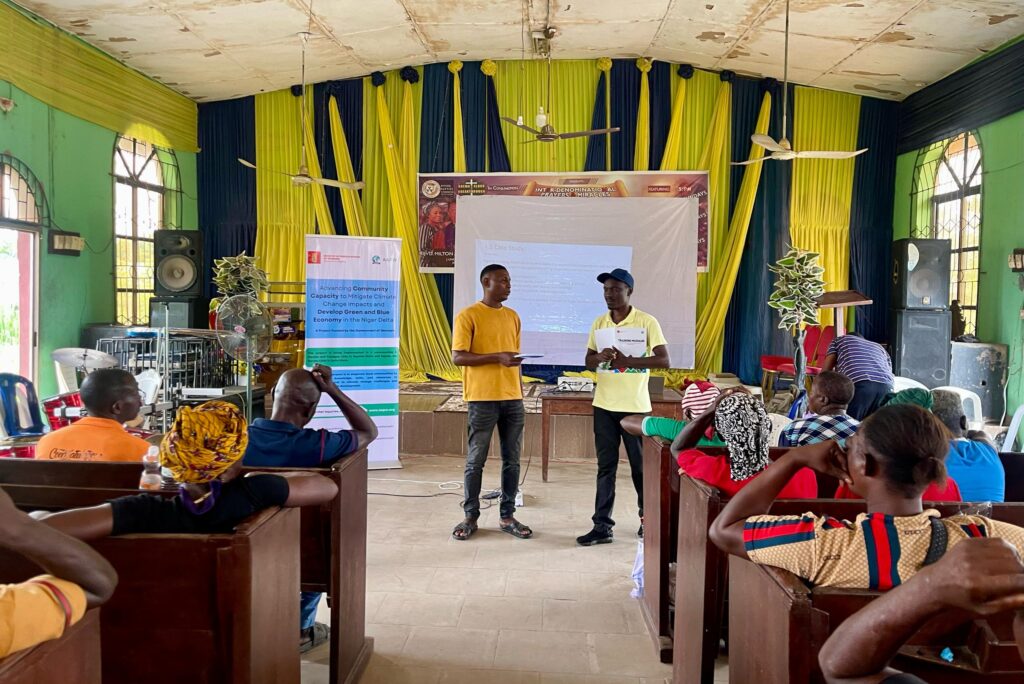
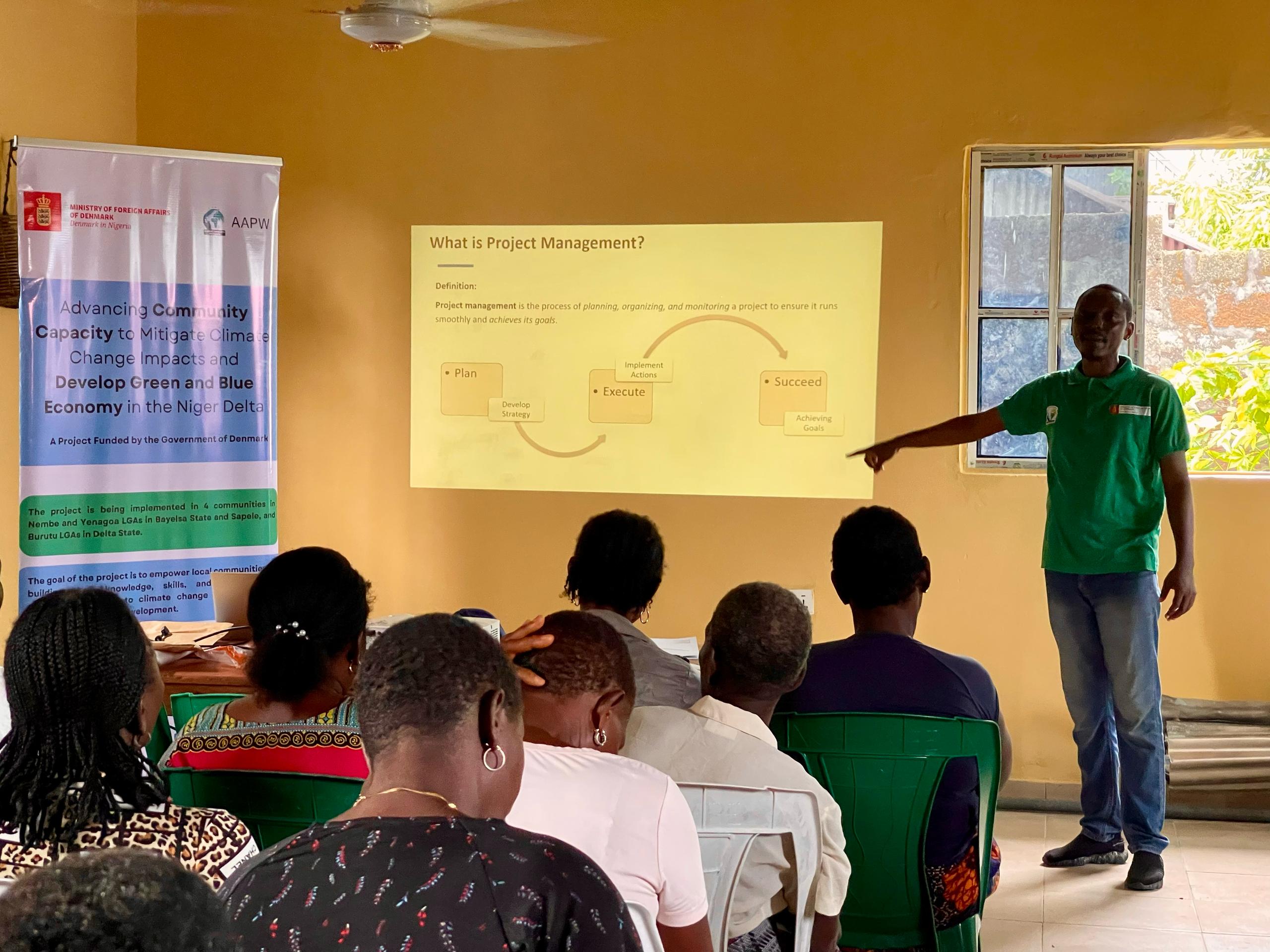
Sustainable fishing techniques were introduced as a critical component of this module, recognizing the central role fishing plays in the Niger Delta’s economy. Participants were trained on environmentally responsible fishing practices such as selective harvesting, use of non-destructive gear, fish farming as an alternative to overfishing, and protecting breeding grounds to allow stock regeneration. These practices aim to ensure long-term productivity of aquatic ecosystems while supporting fisherfolk’s livelihoods.
Market access, a major challenge for small-scale producers, was tackled in the third module. Participants were guided through the dynamics of market linkages, including understanding how markets work and identifying various types of buyers. They explored strategies for accessing local markets, establishing relationships with wholesalers and retailers, and even connecting with exporters and larger buyers. The importance of packaging and branding was emphasised as essential tools for product visibility and credibility. Negotiation techniques were shared to help participants secure better prices for their goods.
The final module delved into financial management and business planning. Participants were taught why financial discipline is crucial for sustaining and growing small enterprises. They learned the basics of record keeping and bookkeeping and how to develop simple but effective business plans. Concepts such as cost analysis, pricing, and profit margins were broken down in accessible terms. The sessions also explored ways to save, invest, and access resources for business growth.
Throughout the programme, participants engaged actively with the content, drawing from live experiences and applying new knowledge in practical, relatable ways. The training not only improved their technical capacities but also instilled confidence to pursue sustainable livelihoods amid the challenges posed by climate change.
